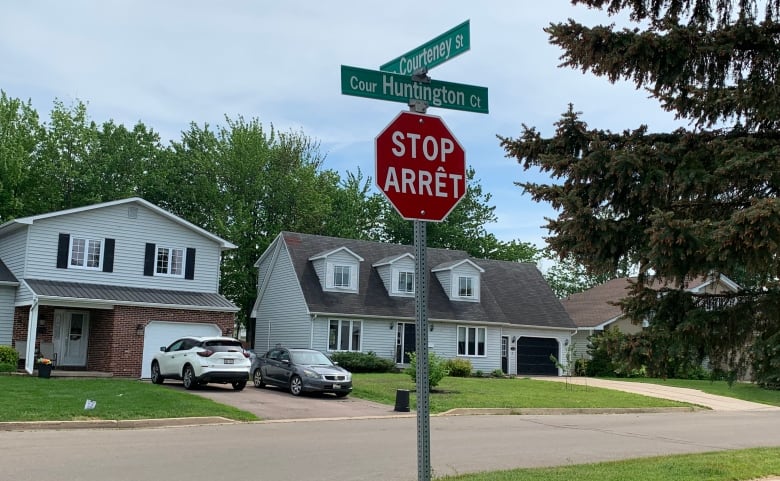Record selling prices for N.B. houses great for sellers, but may cost the neighbours
Service New Brunswick calculating how much rising property values will affect tax assessments

New Brunswick residents who have been watching neighbours sell homes for record prices over the last year and wondering what that reveals about the value of their own houses are not alone — provincial property tax assessors are wondering the same thing.
In a review underway of hundreds of millions of dollars in real estate transactions since last summer, officials with Service New Brunswick are attempting to piece together where property values now sit for tax purposes given sizzling real estate markets from one end of the province to the other.
The findings could set off a wave of large assessment and tax increases that will hit most homeowners next spring — regardless of whether they have sold their properties. It is also possible findings will conclude escalating sale prices are mostly a COVID-related pricing bubble that hasn't fundamentally moved property values at all.
"Assessors have a way to sort out real estate sales that are overvalued," Service New Brunswick's Valerie Kilfoil said in an email.
"As this year is not a typical year there will be extra investigation and analysis."
Property records show several thousand houses have sold in New Brunswick over the last 12 months, many at prices significantly beyond their assessed values. In the past, that generally has been the key factor in moving the government's "market based" assessments upward.
Vanessa Fuentesfina was expecting her second child last year and began a hunt for a Moncton area home just as prices began moving rapidly higher.

After some early disappointment looking for a place in Dieppe and Riverview, Fuentesfina found a place to buy last September on Cole Avenue near the Birchmount school in Moncton.
At the time it was assessed at $141,300 by Service New Brunswick and although listed for sale by the owner at $190,000, Fuentesfina and her husband eventually paid $222,500 to fend off other buyers and land the property.
"Houses right now are way too high and a lot of people are struggling to buy," said Fuentesfina, who was initially unhappy with how much she paid but now thinks she might have gotten away with a deal.
She said a real estate agent recently called to tell her the house would likely attract offers up to $280,000 if she wanted to relist it.
"I said really? We just bought it last year," said Fuentesfina.

Service New Brunswick did raise the assessed tax value on Fuentesfina's house 25 per cent after her family bought it, but this year will analyze the sale further in combination with other sales in the area to decide on a general increase for all neighbourhood homes.
Service New Brunswick has generally said house sales between June and the following May are used to conduct mathematical mass appraisals of properties.
Moncton has been at the centre of the province's real estate buying spree and will receive significant scrutiny.
In the Birchmount area alone, more than 40 homes have sold in the last year for prices no one dreamed possible just months ago.
Courteney Street and Huntington Court are quiet residential streets that intersect in the middle of the neighbourhood. The two have 37 houses between them, six of which have sold in the last two years.

Three were bought in 2019 for an average price within $3,000 of their assessed values. Over the last nine months, three more have sold above their assessed values by an average of $90,000.
Tad Mangwengwende is a senior analyst and economist with the Canada Mortgage and Housing Corporation. In March, he said there was a "high overvaluation" of housing prices in Moncton.
"The level of house prices was significantly higher than the price level warranted by changes in housing market fundamentals," said Mangwengwende in his analysis.
"Low mortgage rates and population growth drove up demand for houses, but their impact did not fully account for the price levels observed."
In an interview, Mangwengwende said that little has changed since that March analysis and he sees similar issues in other New Brunswick markets.
"The story is shared with other centres across New Brunswick, so in Fredericton you will be seeing some of that and in Saint John you will be seeing some of that as well," he said, about prices outpacing fundamental changes in the underlying economy.
If Service New Brunswick agrees, that may help soften assessment and property tax increases for homeowners in neighbourhoods where selling prices have been high. However, that analysis is still ongoing and Service New Brunswick has until October to reveal where property assessments and taxes are headed.

